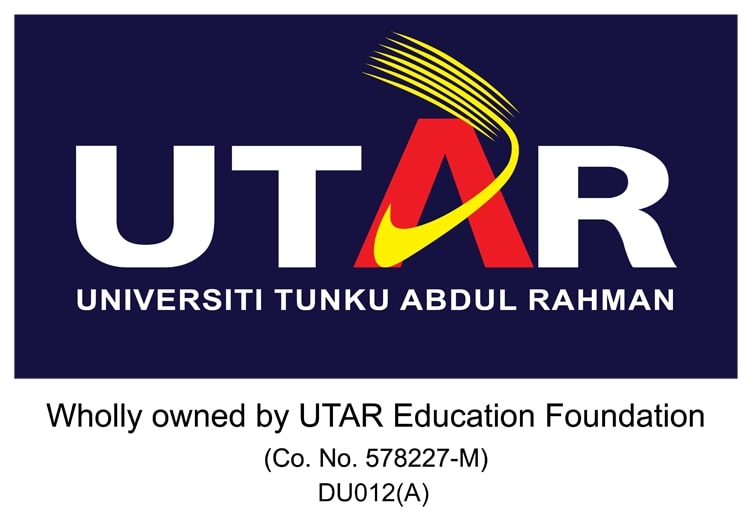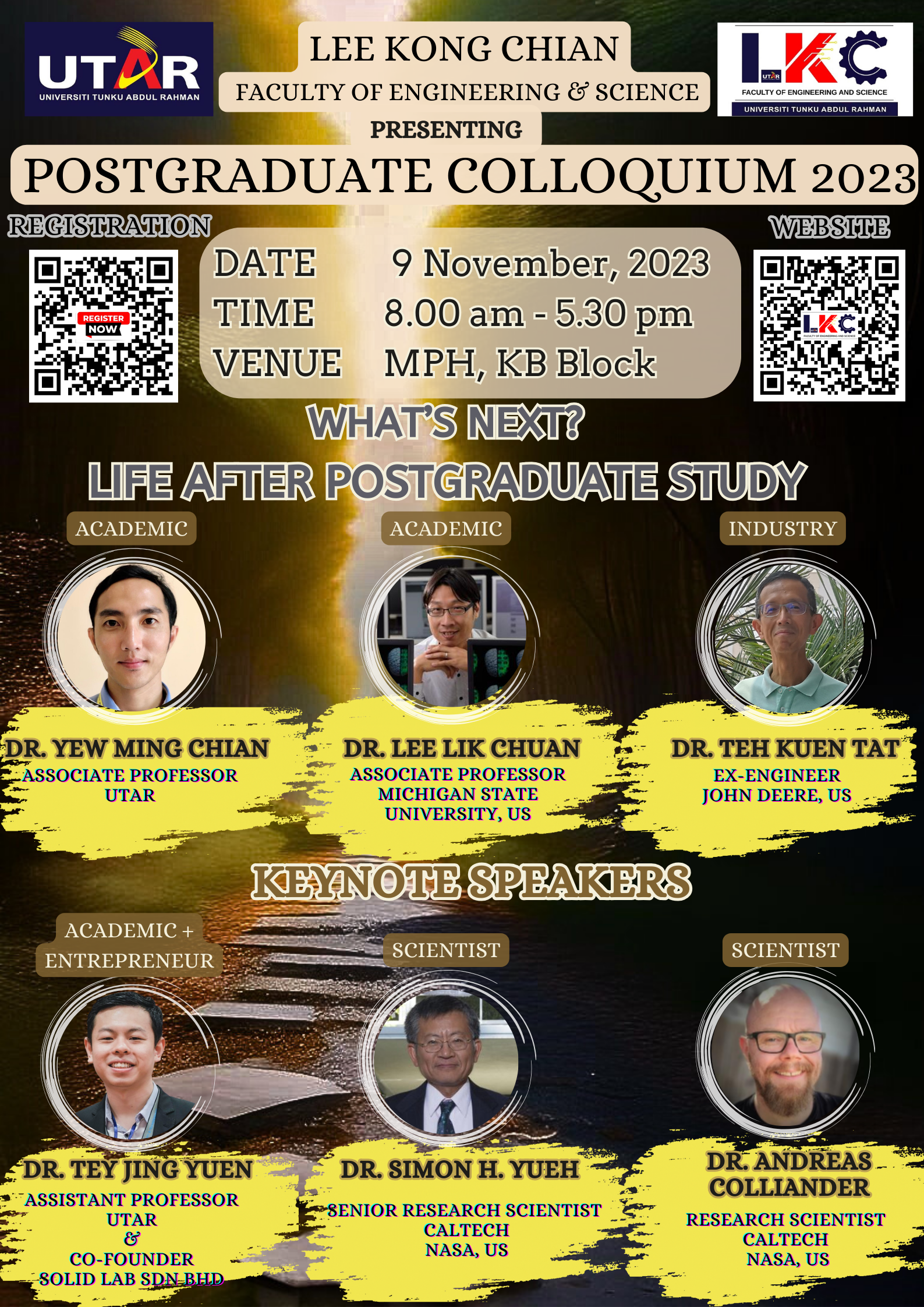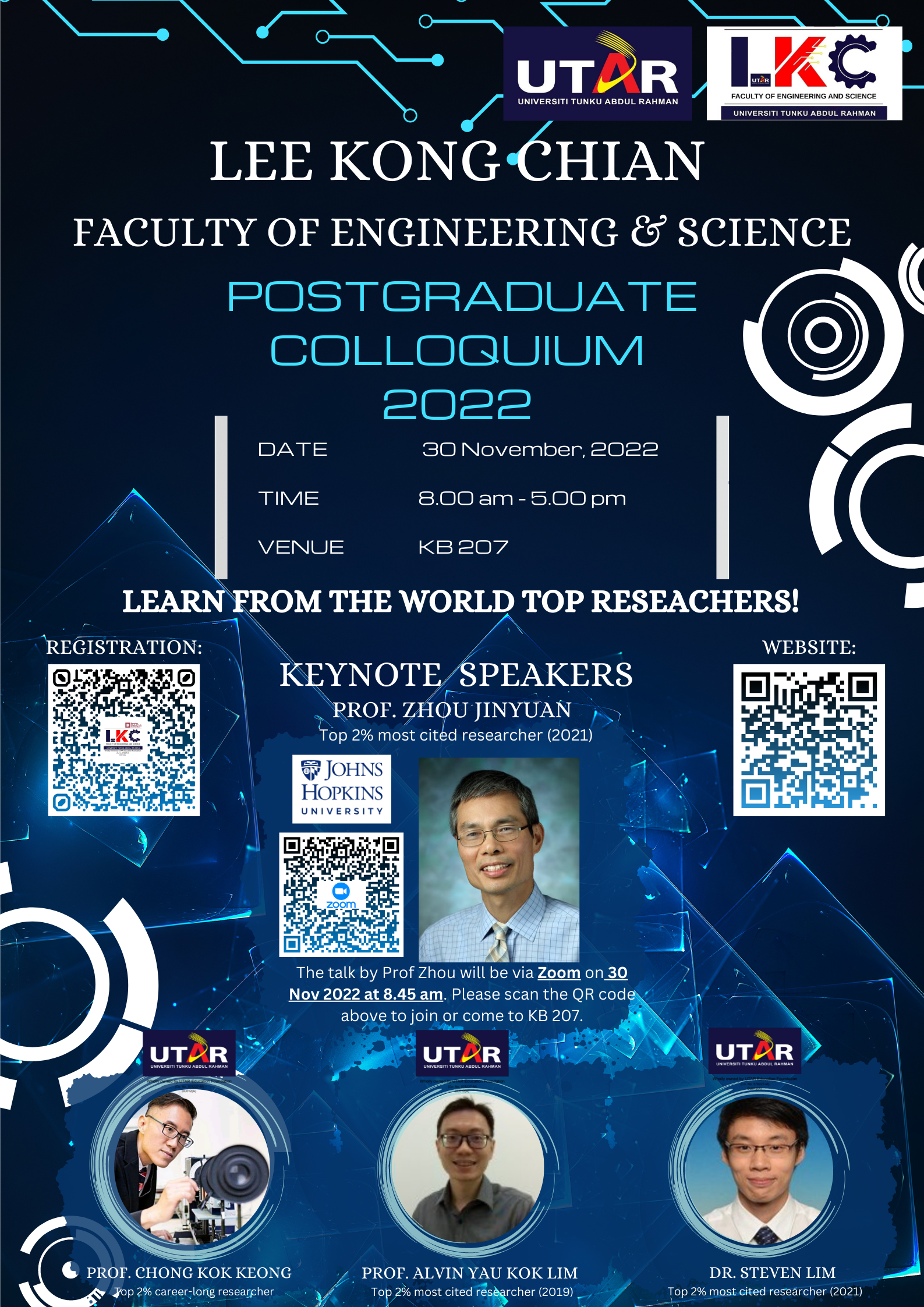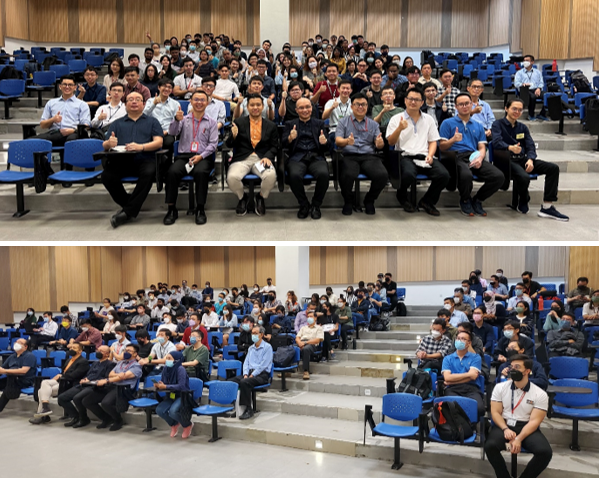Here is a collection of past events to give you an idea of what to expect this year: 2022 2021 2019 2018
2023
Objectives:
The Lee Kong Chian Faculty of Engineering and Science (LKC FES) is proposing to organize the LKC FES Postgraduate Colloquium in Nov 2023 together with 11 research centres in which supervisors of postgraduate students are parked under these research centres. The LKC FES colloquium provides a platform for the postgraduate students in the LKC FES to present their recent works or findings. It will also serve as a platform for postgraduate students and academic staff of LKC FES to exchange ideas and gather feedback on their research works. Through these interactions, students will gain valuable experience in presenting their works and interacting with others working in different areas in the faculty to promote interdisciplinary research collaboration.
Organizing Committees:
Chairman: Dr. Tee Yee Kai
Program and Registration: Ts. Dr. Khaw Chwin Chieh, Dr Ng Yee Sern
Centre Chairperson: CASMR: Dr. Steven Lim
CPSE: Ir. Prof. Dr. Lim Yun Seng
CRIE: Ir. Dr. Chua Kein Huat
CCS: Dr. Denis Wong Chee Keong
CAICA: Prof. Ts. Dr. Yau Kok Lim
CCSN: Prof. Ts. Dr. Lim Eng Hock
CMS: Dr. Sim Hong Seng
CDRR: Dr. Lim Ming Han
CHST: Ir. Dr. Chee Pei Song
CSMT: Ir. Ts. Dr. Bernard Saw Lip Huat
COSBE: Dr. Lim Poh Im
Webmaster: Mr. Choong Ren Jun
Refreshment and Venue Booking: FGO
Postgraduate helpers: Mr Pan Swee Qi, Mr Rami Alhayek, Mr Yong Ming Ping
Format of colloquium:
• One day event with six keynote speeches by invited speakers, followed by presentations of postgraduate students.
• The participated postgraduate students are required to register their titles and submit an extended abstract. The extended abstract should include Introduction, Methods, Results, Discussion and Conclusion. All citations and references must be done in the IEEE citation style.
• The presenters (postgraduate students) will be categorized based on their research centers or related research area. The presentation will be conducted in parallel sessions.
• Each presenter is given 10 minutes for presentation and 5 minutes for Q&A. During this period, he/she is expected to present the outcomes and/or progress of his/her work.
• The chair of each session (center chairperson or representative) will provide feedback to each presenter in the session on how to improve his/her work and presentation, wherever applicable.
2022
The 4th LKC FES Postgraduate Research Colloquium was held on 30 November 2022 from 8.00 am – 5.00 pm in the KB building of the Sungai Long campus. The colloquium received 87 abstract submissions and 142 participants joined the event.
It was started with the welcoming remarks from Dean, Dr. Yap Wun She. Then, it was followed by four keynote lectures, which were delivered by Professor Zhou Jinyuan from Johns Hopkins University, US, Professor Chong Kok Keong, Professor Yau Kok Lim and Dr Steven Lim from UTAR.
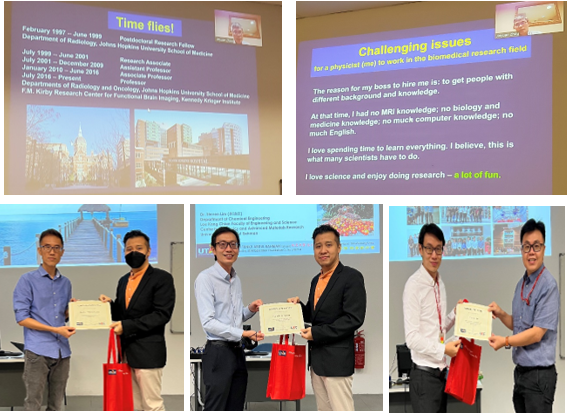
After that, the event was followed by 6 parallel postgraduate presentation sessions according to five themes, and each session was chaired by two academic staff as the session chairs.
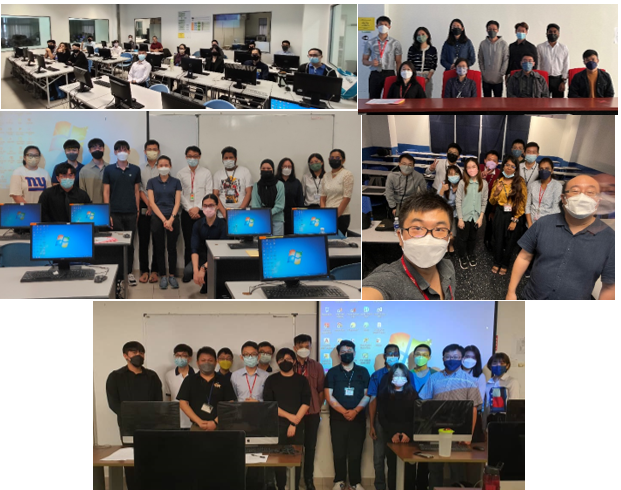
At the end of each parallel postgraduate presentation session, the best presenter was selected, and they were listed as follows:
| Session | Best Presenter |
| Session 1: Applied Engineering 1 | Danyal Sorayyaei Azar |
| Session 2: Applied Engineering 2 | Lim Wei Han |
| Session 3: Applied Mathematics, Simulation and Computing | Wai Kok Poh |
| Session 4: Health Science & Technology | Pang Swee Qi |
| Session 5: Green Technology & Sustainable Development | Wong Wan Ying |
| Session 6: Energy, Project & Intelligent Management | Ong Wei Heng |
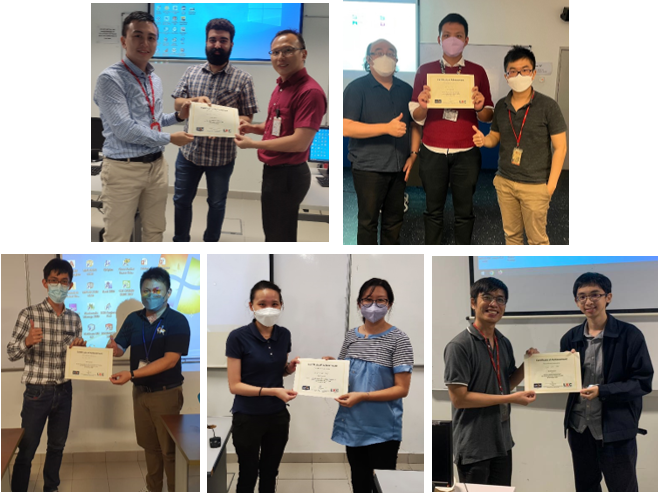
2021
LKC FES Postgraduate Research Colloquium 2021 makes a comeback
The LKC FES Postgraduate Research Colloquium 2021 made a comeback on 29 Nov 2021 via Microsoft Teams. The virtual colloquium was organised by UTAR Lee Kong Chian Faculty of Engineering and Science (LKC FES) along with the Centre for Photonics and Advanced Materials Research (CPAMR). A total of 60 participants was present at the colloquium.
The colloquium aimed to provide a platform for the postgraduate students in LKC FES to present their recent works or findings in their fields of research. It also provided a platform for postgraduate students and LKC FES academic staff to exchange ideas and gather feedback on their research works.
The colloquium featured two keynote lectures and a postgraduate presentation session. The presentation session was divided into five parallel groups based on the postgraduate students’ research areas. The research area included “Applied Engineering”,“Applied Mathematics, Process Automation, Simulation and Computing”, “Energy and Intelligent Management”, “Sustainable Development” and “Theoretical/experimental Sciences”.
The colloquium commenced with welcome remarks by LKC FES Dean Ir Prof Dr Goi Bok Min. It was followed by keynote lectures from King Mongkut’s University of Technology North Bangkok academic Dr Santi Chuetor and UTAR academic Prof Ts Dr Lim Eng Hock.
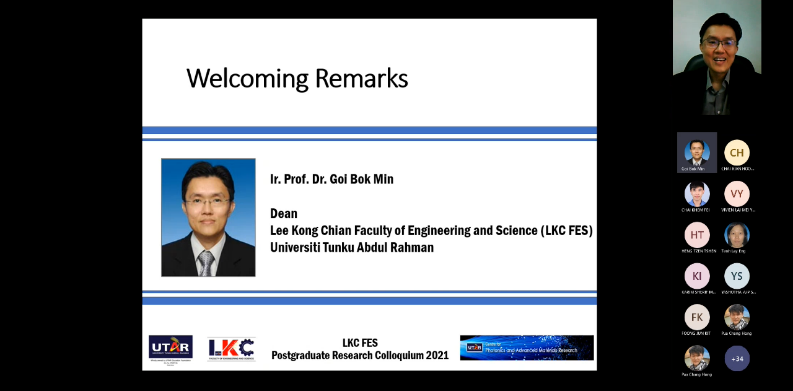
Prof Goi delivering his welcome remarks
Prof Goi said in his opening remark, “First and foremost, congratulations to the committee members of LKC FES Postgraduate Research Colloquium 2021 for their effort and determination in succeeding this project. This 3rd postgraduate colloquium is joined by LKC FES postgraduate students from five research areas, namely Applied Engineering; Applied Mathematics, Process Automation, Simulation and Computing; Energy and Intelligent Management; Sustainable Development; and Theoretical/Experimental Sciences. Through these interactions, I believe students will gain experience in presenting their works and expose themselves to the different fields of research undertaken by other students in the faculty.”
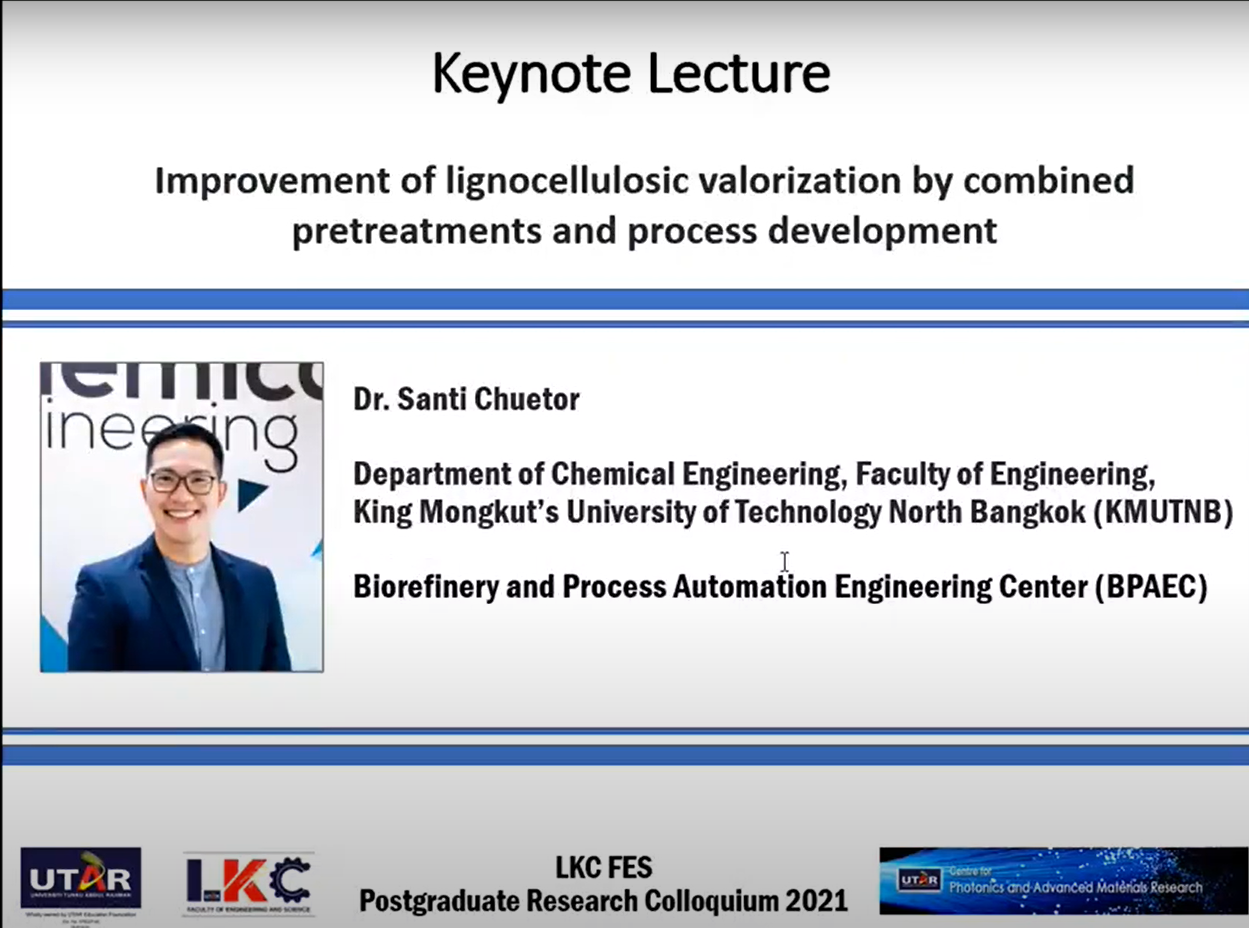
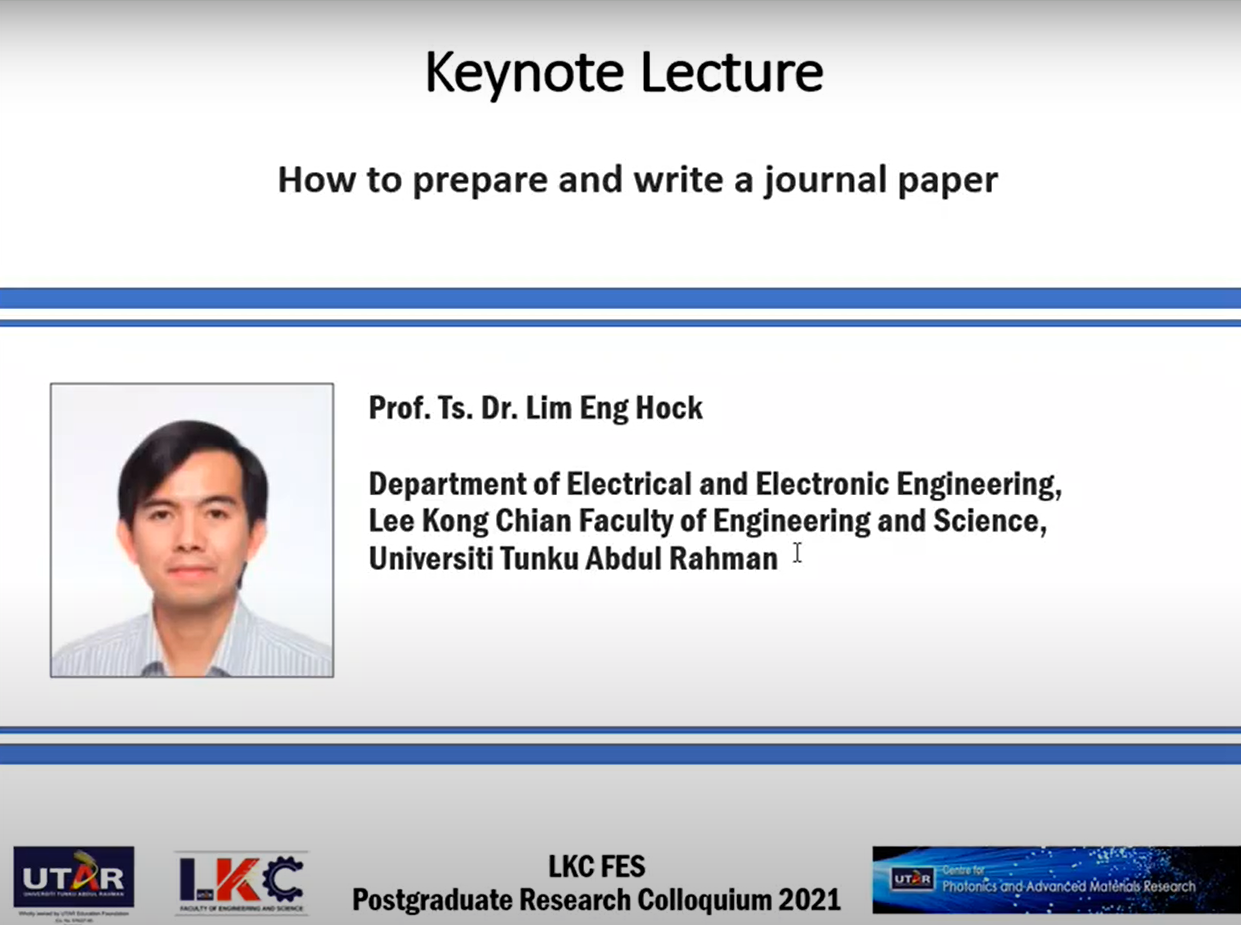
Two keynote lectures by Dr Santi and Prof Lim
Dr Santi and Prof Lim enlightened the participants in the keynote lecture session by sharing the topics “Improvement of Lignocellulosic Valorization by Combined Pretreatments and Process Development” and “How to prepare and write a journal paper”, respectively. Dr Santi shared the COP 26-goals to unite the world in tackling climate change and Lignocellulosic pretreatments technology while Prof Lim shared the fundamental steps and tips to write a journal paper.
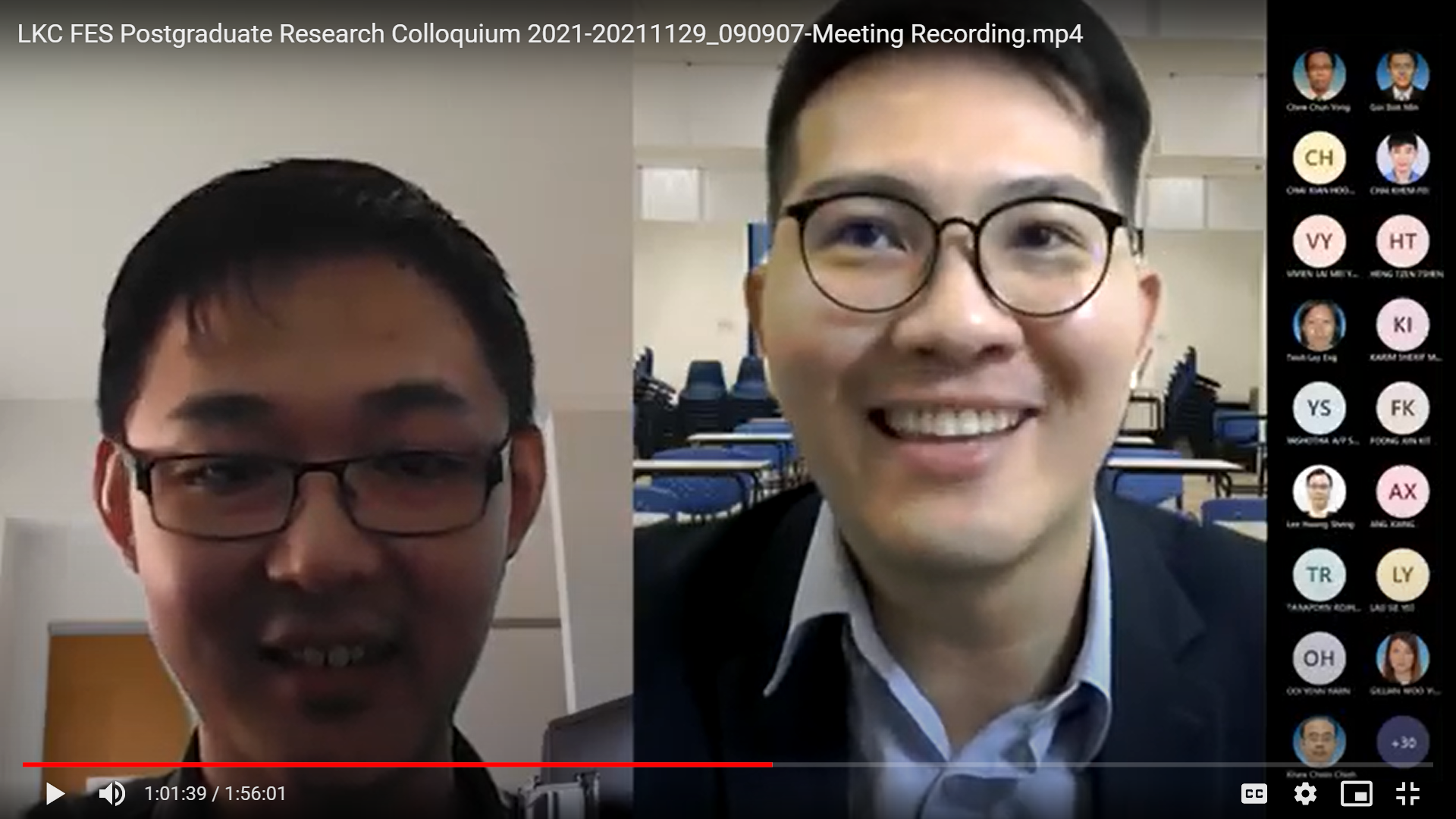
Dr Santi (right) shared about COP26-goals in tackling climate change and Lignocellulosicpretreatments technology
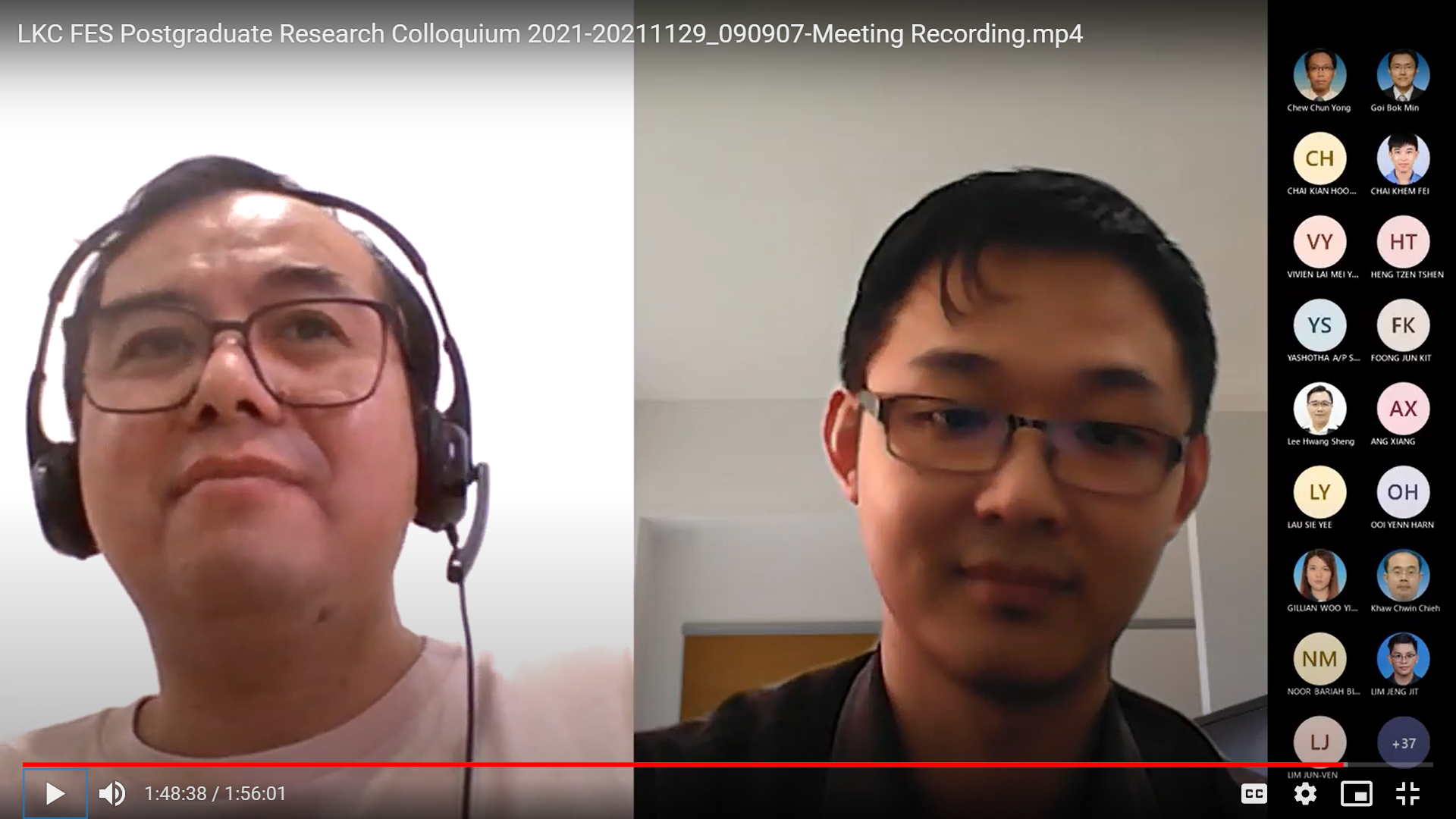
Prof Lim(left) sharing the fundamental steps and tips to write a journal paper
The colloquium was then continued with five parallel sessions in which UTAR postgraduate students presenting their respective research topics. The presentations were then evaluated by the respective session chair and the best presenter was elected from each session.
The best presenter for each session is as follows:
| Session | Title | Best Presenter |
| Session 1: | Applied Engineering | Chai Yi Ding |
| Session 2: | Applied Mathematics, Process Automation, Simulation and Computing | Victor Low Jian Ming |
| Session 3: | Energy and Intelligent Management | Chia Min Yan |
| Session 4: | Sustainable Development | Lee CheeHiun |
| Session 5: | Theoretical/experimental Sciences | Lim JengJit |
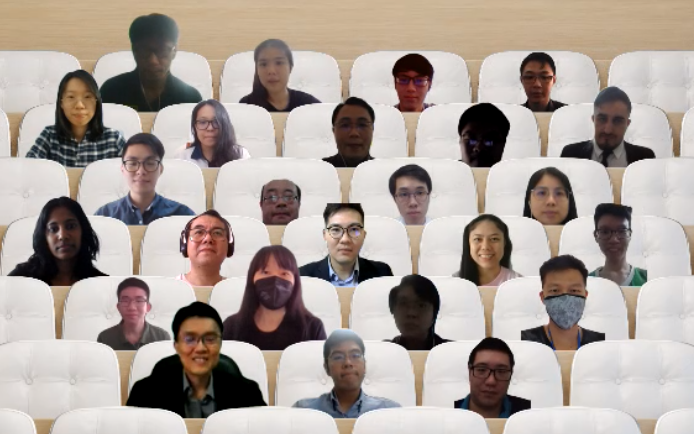
LKC FES Dean Prof Goi(bottom row, most left) and keynote speaker Prof Lim and Dr Santi Chuetor (fourth row, second and third from left) with some of the particpants
2019
Exploring research techniques at
LKC FES Postgraduate Colloquium
The Lee Kong Chian Faculty of Engineering and Science (LKC FES) along with eleven research centres organised the LKC FES Postgraduate Colloquium 2019 on 11 October 2019 at UTAR Sungai Long Campus. The colloquium aimed to provide a platform for the postgraduate students to present their recent works or findings in their research fields as well as for the postgraduate students and academic staff to exchange ideas and gather feedback on their research works.
More than 40 postgraduates presented their research works at the colloquium. Present at the colloquium were LKC FES Dean Ir Prof Dr Goi Bok Min, Yuan Ze University, Taiwan Prof Dr Lin Kuen-Song, LKC FES lecturer Ir Dr Jeffrey Yap Boon Hui, students and staff.
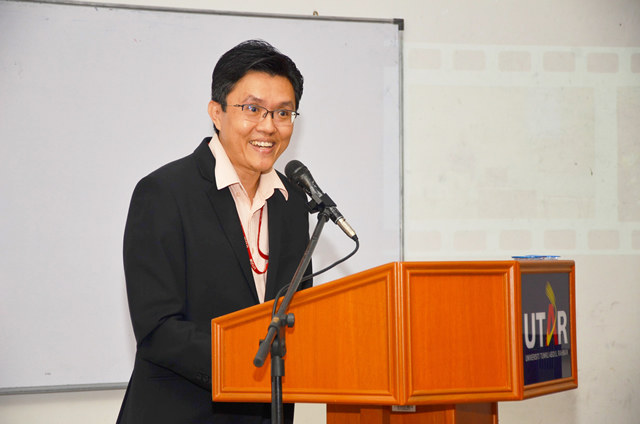
Prof Goi delivering his welcome remarks
Prof Goi said in his opening remark, “This is the second R&D postgraduate colloquium held by LKC FES with the aim to provide students the platform to share their research works as everyone’s research is different. From the diversified topics, we will be able to acquire new knowledge and improve ourselves. This would also be a good time to train up your presentation skills and to learn different techniques to conduct research while building human networks for future collaboration.”
Prof Lin presented his keynote address titled “Strategies, Development, and Application of AI/IoTs/Smart Manufacturing of Industry 4.0 on Communication, Engineering, Health Care, and Environmental Science”. He spoke about several pieces of research such as device-free localisation, group/individual trajectory prediction, air quality forecasting, voice disorders, automatic weld seam extraction using machine learning, Industry IoT (IIoT) system design with Bluetooth radio and (IIoT) system firmware design with Bluetooth radio.
The second keynote was presented by Dr Jeffrey Yap where he spoke about “Capability building towards improved project performance: Capitalising learning and communication in construction”. He said, “The construction industry is one of the fastest-growing industries in Malaysia which contributes about 4 to 5 per cent to the Malaysian Gross Domestic Product. It is also the main driver of the economy and a key driver for skilled jobs as the country progresses towards high-income status. The prevalent managerial issues undermining project performance include the lack of knowledge, deficient knowledge management, ineffective communication and fragmentation known as adversarial culture. Thus, Rework is a significant inhibitor for time, cost, safety and quality control in construction projects.”

Prof Goi presenting the token of appreciation to Prof Lin (left) and Dr Jeffrey Yap (right)

Prof Lin (left) and Dr Jeffrey Yap (right) during their presentation
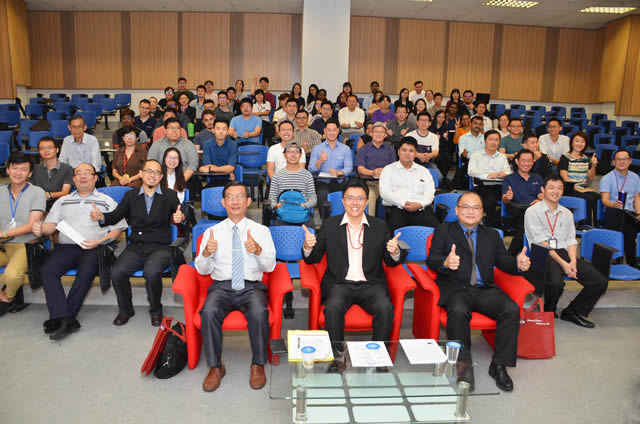
Front row, from left: Prof Lin, Prof Goi and Dr Jeffrey Yap with students and staff
The keynote session was followed by postgraduate students’ presentation, which was divided over eight groups based on their research areas. The research areas were Green Technology, Applied Engineering, Health Science; Applied Mathematics, Process Automation, Simulation and Computing; Energy and Intelligent Management, Project Management, Sustainable Development, Theoretical/experimental Sciences.
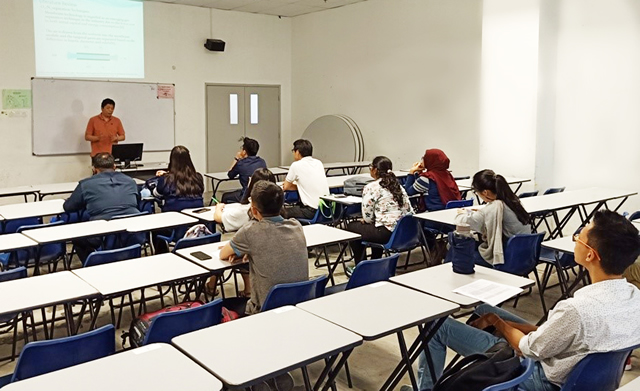
The presentation session for “Green Technology” cluster
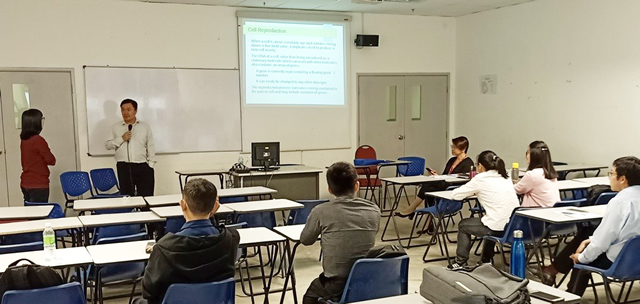
The presentation session for “Applied Mathematics, Process Automation, Simulation and Computing” cluster
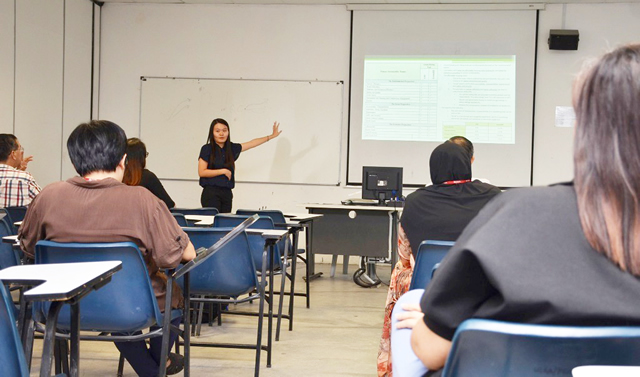
The presentation session for “Project Management” cluster
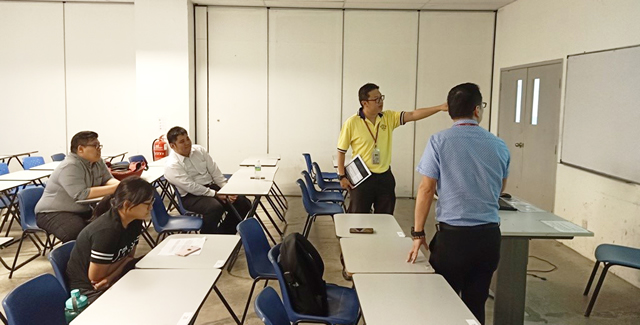
Discussion between the expert and the students
2018
May 2018: First LKCFES Postgraduate Programme
First LKCFES Postgraduate Colloquium was held on 17 May 2018 from 1.30pm to 5pm. The postgraduate colloquium aims to:
- Provide an opportunities to postgraduate students for sharing their research projects or any information that is beneficial to other postgraduate students
- Provide a platform for the interaction among postgraduate students and faculty staffs
- Encourage/build the research culture in Lee Kong Chian Faculty of Engineering and Science
There are more than 80 presentations being selected from postgraduate students parked under 11 different research centres. These 11 research centres are listed as follows:
- Centre of Cyber Security
- Centre of Computing and Intelligent System
- Centre of Communication System and Networks
- Centre of Mathematical Science
- Centre of Photonics and Advanced Materials Research
- Centre of Vehicular Technology
- Centre of Power Systems and Electricity
- Centre of Healthcare Science and Technology
- Centre of Railway Infrastructure and Engineering
- Centre of Disaster Risk Reduction
- Centre of Sustainable Architecture
Overall programme can be downloaded HERE.








